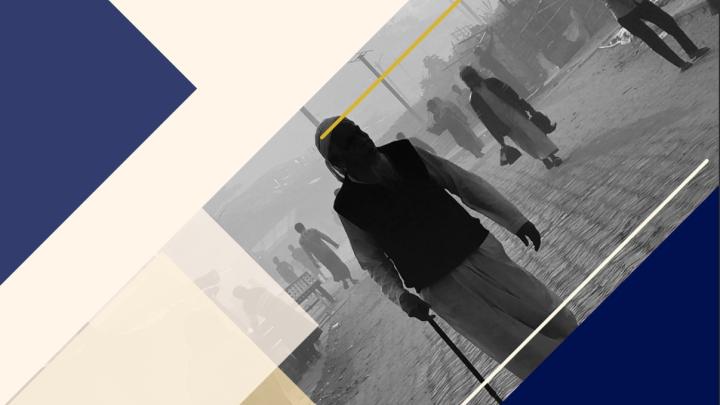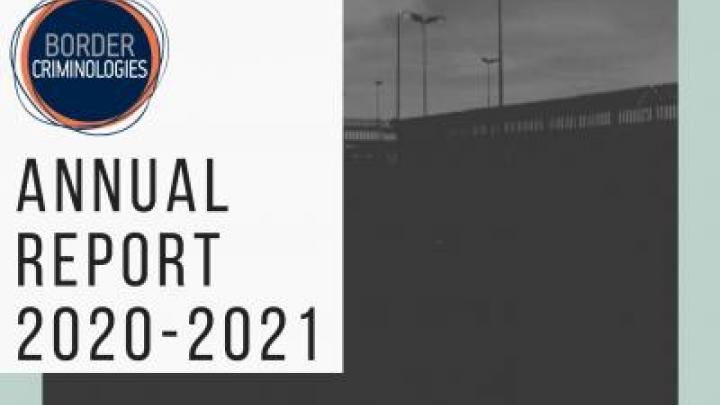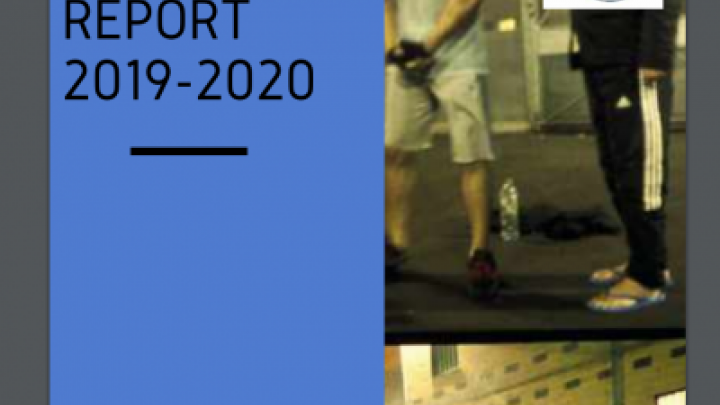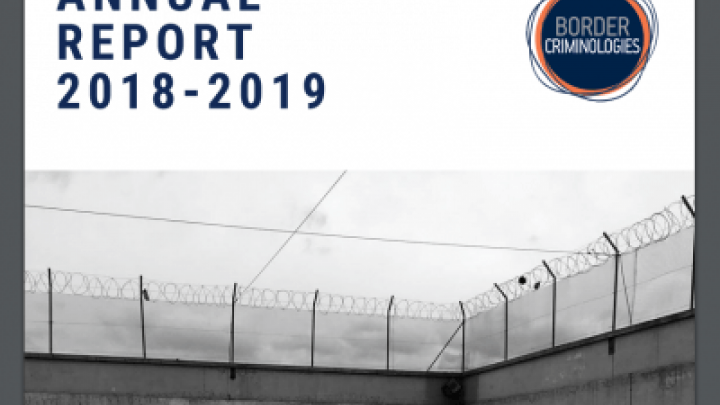Annual Report 2023-2024
Posted
Time to read
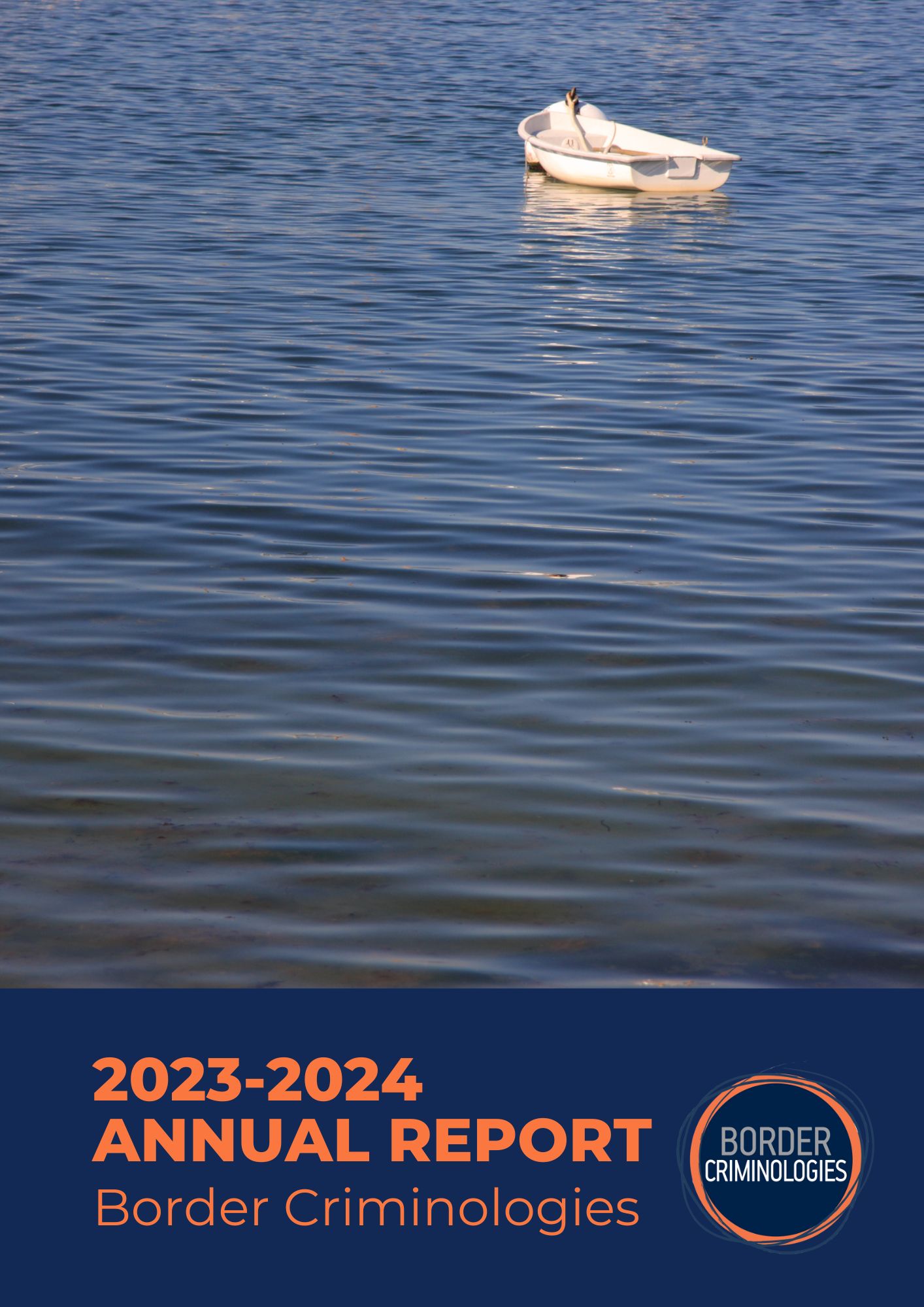 Border Criminologies celebrated its 10th Anniversary this year. We marked this milestone at a two-day event in September 2023, with a range of speakers from Norway, Sweden, Spain, Poland, Germany, Hong Kong, India, Australia, United States, Brazil and the UK. We celebrated the achievements of our network, contemplated future challenges and how best to address them, and promoted our new logo specially designed for the anniversary year.
Border Criminologies celebrated its 10th Anniversary this year. We marked this milestone at a two-day event in September 2023, with a range of speakers from Norway, Sweden, Spain, Poland, Germany, Hong Kong, India, Australia, United States, Brazil and the UK. We celebrated the achievements of our network, contemplated future challenges and how best to address them, and promoted our new logo specially designed for the anniversary year.
A Handbook on Border Criminology, co-edited by Mary Bosworth, Maggy Lee, Katja Franko and Rimple Mehta, with chapters from our network members, is due to appear in November 2024 published by Edward Elgar.
When Mary founded Border Criminologies in 2013, she did not imagine that ten years later it would still be necessary and indeed part of a growing set of conversations and scholarship. Over the last decade, members have contributed to a vibrant field of study as well as activism. As border regimes and public narratives around migration and mobility in many countries become harsher, the scholarly evidence our members produce remains one of the key bulwarks against ignorance, prejudice, and intolerance.
While Border Criminologies began with the focus on detention, deportation and border policing in Australia, the UK and Norway, these days we show-case research on a much wider range of topics and jurisdictions. In recognition of the diversity of work that is being conducted and also to invite new members, we reorganised the network this year into six thematic strands/groups. Their activities and how to join in are summarised below.
In addition to our new structure, we have also seen some operational changes. Having previously managed the website and blog, Andriani Fili is now a co-Director. Ana Aliverti and Rimple Mehta have stepped down from their roles as Associate Directors, although Ana has not gone far, as she has joined our Advisory Board, which is also changing. We would like to thank Didier Fassin, Sharon Pickering, Coretta Phillips and Ben Bowling for their early support, and Ana, Andriani and Rimple for their contribution to the network, especially during the very difficult time of the global pandemic. After nearly 5 years as our book review editor, Claudia McHardy will be handing over responsibilities by the end of the year. She will be replaced by Nayera El Bar, who is also helping with updating the Detention Landscapes database. We have also welcomed two new MSc student researchers, Carmen Le and Sophia Dermetzis, who have joined forces with our amazing Managing Editor Diana Volpe in blog editing and helping with the newsletter. We have also appointed Alla Sui Lau to a paid role in communications. We would like to express our gratitude and appreciation for this wonderful group of people, who bring a lot of positivity and creativity to our work.
As we draw this year to a close, we look to the future(s). As ever, we are in search of funding and financial support. We use this opportunity to thank all of you who have supported our work. A British Academy grant together with generous donations from Leiden University and Warwick University are keeping us afloat, along with smaller sums from individual projects based in Oxford. These grants have allowed us to appoint new members of staff who are developing our communications programme and maintaining the high editorial standards on the blog. In saying this, we need additional funds so that we could facilitate further knowledge production, public engagements, policy briefs and statements, research internships, knowledge exchange, and more in person events.
The network has been busy as the following pages make very clear.In difficult times for us all, our network members remain committed to the cause, full of creativity and dedication to our social, political, activist, academic and human rights agenda. This year, Border Criminologies launched a multi year project that was conducted with NGOs in Greece to gather evidence of human rights abuses in detention. That material is available online and is playing a key role in the growing awareness of the appalling state of affairs in Greece. We hope the material can be used in successful legal claims.
In the UK our members have contributed to the recent Sentencing Council calls for comment on a sentencing framework for immigration crimes. They have also produced some of the only available evidence about the treatment of vulnerable people who are forced to cross the English Channel in Dinghies in search of asylum. New work within our network is forthcoming on digital and technological innovations in border control, and how best to engage with challenges that AI and other frontier technologies bring to the field of border criminologies Members of our network are also stepping away from research inside institutions and embarking upon more creative ways to engage with the public, affected communities, and policy makers and spark radical political transformations.
We are proud of our achievements, and excited to see what our members can do in the coming year. We know the road will be ever more difficult, given the current state of affairs in the world, but we are, as ever, pushing forward. Keep an eye on our activities on socials and on our website, and join us and support us, in any way you can. We are looking forward to working with you all and hopefully, celebrate further successes in dismantling hostile border policies across the globe.
Andriani, Mary and Sanja
Share
YOU MAY ALSO BE INTERESTED IN
With the support of








